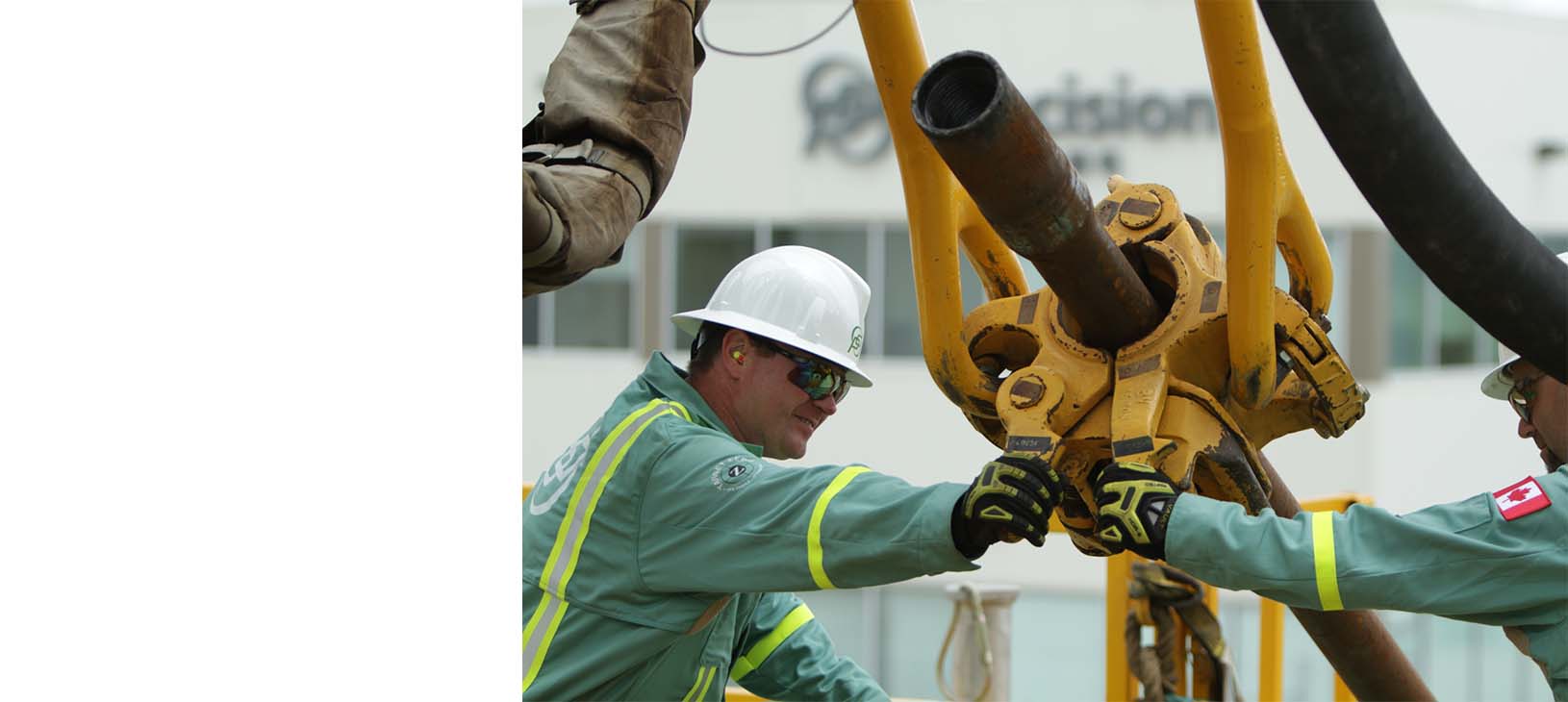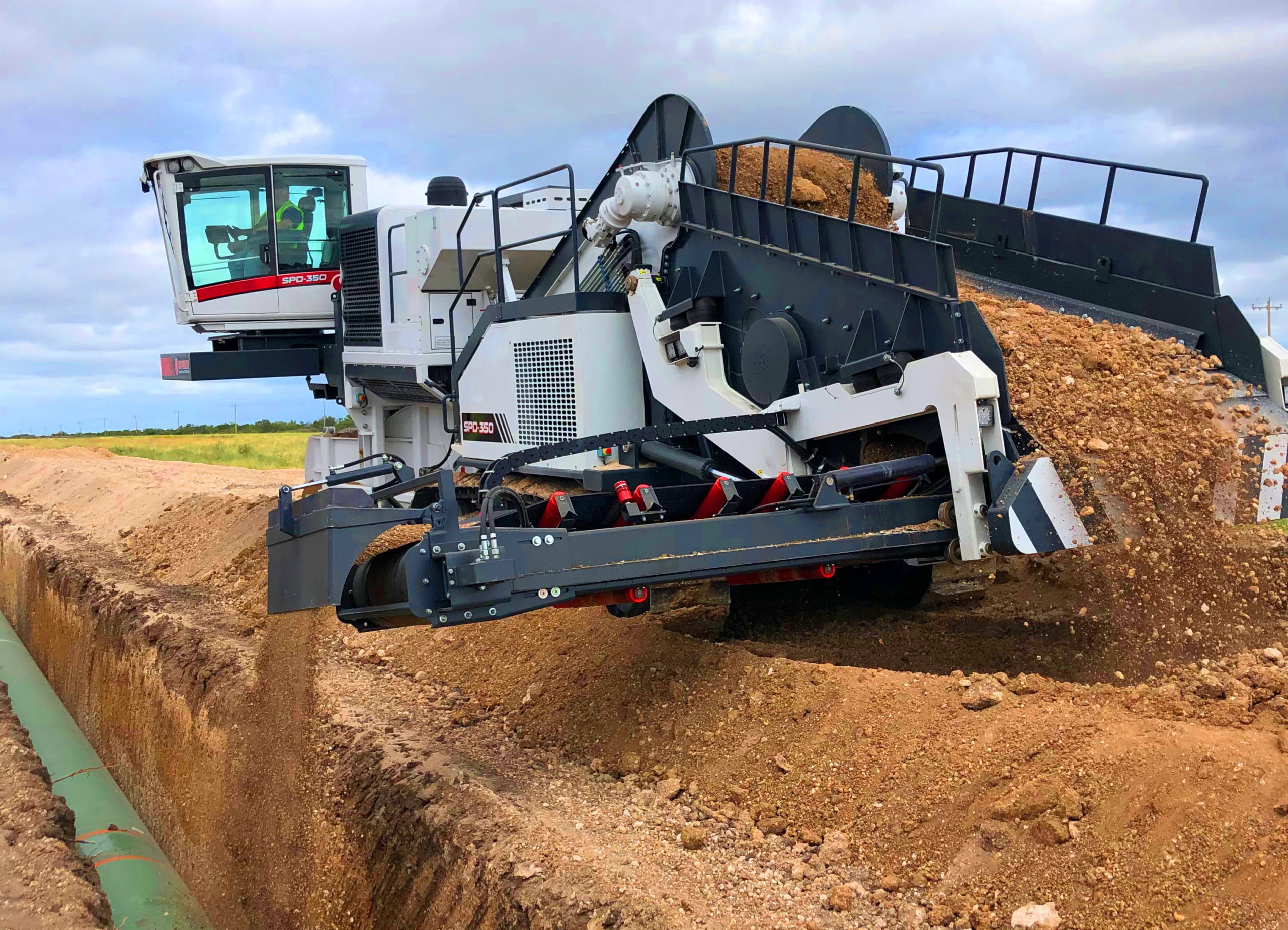Superior Rentals near me: cost guide for project managers
A Comprehensive Overview to the Numerous Sorts Of Oil Field Equipment and Pipeline Equipment Available
The oil and gas market depends heavily on specific devices for effective extraction and transportation. Different kinds of machinery, from piercing rigs to tank, play crucial functions in this complicated process. Each piece of equipment serves unique functions that contribute to overall operational success. Understanding these parts is essential for anyone associated with the sector. As the sector evolves, so also do the modern technologies that sustain it. What improvements are on the horizon?

Drilling Rigs: The Backbone of Oil Expedition
Drilling rigs function as the necessary machinery in the domain of oil expedition, enabling business to accessibility hydrocarbon reserves hidden deep beneath the Planet's surface area. These rigs come in different kinds, including land rigs, offshore rigs, and mobile systems, each made to operate in particular settings. Equipped with sophisticated modern technology, drilling rigs can permeate geological developments with accuracy, ensuring efficient resource removal. The architectural integrity and operational abilities of these rigs are important, as they must endure extreme problems and substantial stress. Moreover, the option of an exploration rig impacts the general job price and timeline, making it a vital consideration for oil companies seeking to optimize their expedition efforts and make the most of efficiency in their operations.
Pumps: Necessary for Fluid Motion
In the oil removal procedure, the function of pumps is considerable, assisting in the motion of fluids throughout various phases of manufacturing. Pumps are important for transporting crude oil, water, and various other fluids from below ground tanks to the surface and afterwards through pipes to refineries. They are available in various types, including centrifugal, positive variation, and completely submersible pumps, each serving particular purposes based upon the fluid qualities and functional needs. Centrifugal pumps are typically used for their efficiency in high-flow applications, while favorable variation pumps master handling thick fluids. The selection of pump effects overall performance, operational security, and maintenance expenses. Proper option and maintenance of pumps are vital for enhancing production and decreasing downtime in oil field procedures.
Valves: Managing Circulation and Pressure

Valves play a crucial duty in managing the flow and pressure of fluids within oil fields and pipelines. Different kinds of valves offer distinctive applications, each developed to accomplish specific features basic for effective procedure - Superior Oilfield Rentals. Recognizing the attributes and uses these valves is essential for maximizing system efficiency and safety and security
Kinds of Valves
Essential components in oil field operations, shutoffs play an essential role in controlling the flow and pressure of fluids within pipes and tools. Numerous kinds of shutoffs are used to satisfy the diverse requirements of oil and gas manufacturing. Typical types include gate shutoffs, which give a straight-line circulation and marginal stress decrease; globe valves, known for their strangling capacities; and sphere valves, recognized for their fast on/off control. In addition, check shutoffs prevent heartburn, while butterfly valves supply a lightweight remedy for controling circulation. Each valve kind is designed with particular products and setups to withstand the extreme problems often discovered in oil areas, guaranteeing dependability and effectiveness in operations. Comprehending these kinds is crucial for effective system management.
Valve Applications and Functions
While various kinds of valves offer unique functions, their primary applications revolve around controlling circulation and stress within oil and gas systems. Valves such as entrance, globe, and ball valves control fluid activity, ensuring peak performance and security. Gate shutoffs are commonly made use of for on/off control, giving marginal circulation resistance. Globe valves, on the various other hand, offer exact flow law, making them ideal for strangling applications. Ball valves are preferred for their quick operation and tight securing abilities. On top of that, stress safety valve are critical for stopping system overpressure, guarding equipment honesty. Generally, the appropriate option and application of shutoffs improve functional efficiency, guaranteeing the trustworthy transport of oil and gas with pipelines and handling facilities.
Compressors: Enhancing Gas Transport
Compressors play an essential function in the efficient transportation of natural gas, guaranteeing that it moves smoothly via pipes over fars away. These tools raise the pressure of gas, enabling it to get over friction and elevation changes within the pipeline system. Additionally, compressors help with the balancing of supply and need, fitting changes in usage and production rates. Various kinds of compressors are utilized in the market, consisting of centrifugal, reciprocating, and rotary screw compressors, each offering distinctive advantages based upon the operational demands. Normal upkeep of these compressors is important to optimize efficiency and reduce downtime, eventually adding to a trusted gas transport network. Their essential function underscores the importance of compressors in the total oil and gas facilities.
Storage Tanks: Safe and Effective Fluid Management
Effective transport of gas counts on numerous sustaining systems, one of which is the correct monitoring of tank. These storage tanks play a vital duty in safely having liquids, guaranteeing that operational performance is preserved while decreasing environmental threats. Built from long lasting products, they are developed to withstand high stress and corrosive aspects. Appropriately sized and tactically located, tank promote the smooth circulation of all-natural gas and other fluids, avoiding bottlenecks in supply chains. Normal maintenance and monitoring are necessary to detect leakages or structural problems, promoting safety and security and conformity with regulative requirements. Inevitably, the reliable monitoring of tank is essential for the general honesty and integrity of the oil and gas sector's fluid handling systems.
Pipeline Solutions: Framework for Transport
Pipeline systems work as the foundation of the oil and gas sector, facilitating the reliable transport of hydrocarbons over huge distances. These systems consist of various components, including pipelines, valves, pumps, and compressors, all meticulously designed to assure smooth flow. The materials used in pipeline building and construction, often steel or high-density polyethylene, are picked for toughness and resistance to corrosion. Pipeline networks can cover throughout land and water, tow behind backhoe for sale attaching production sites you can try this out to refineries and circulation. In addition, progressed modern technology allows real-time monitoring of circulation prices and pressure levels, improving operational efficiency. The critical placement of these pipelines lessens ecological influence while making best use of source access, therefore playing a crucial role in meeting power demands internationally.
Safety And Security Equipment: Making Certain Employee and Environmental Defense
The procedure of pipeline systems, while important for energy transportation, likewise offers substantial security challenges for employees and the setting. Safety and security tools plays a significant role in reducing these threats. Individual protective tools (PPE) such as headgears, handwear covers, and non-slip footwear safeguards workers from physical threats. Furthermore, gas detection systems check for leakages, making certain that harmful materials do not present a threat to personnel or the bordering environment. Emergency shutdown systems are crucial for swiftly halting operations during a situation, preventing potential disasters. Spill control products, including absorbents and obstacles, are basic for lessening ecological effect. Generally, buying comprehensive safety and security tools is vital for preserving operational honesty and shielding both employees and the setting in the oil and gas market.

Often Asked Questions
Just how Do I Choose the Right Oil Field Equipment for My Project?
Selecting the right oil field tools includes assessing job requirements, budget plan restraints, and functional requirements. Think about factors such as devices reliability, compatibility with existing systems, and the distributor's reputation to ensure peak efficiency and safety and security.
What Are the Upkeep Demands for Oil Field Equipment?
Upkeep requirements for oil field devices include regular examinations, lubrication, and prompt repair work. Operators must also adhere to maker standards, display efficiency metrics, and warranty conformity with safety and security policies to enhance longevity and performance.

Exactly How Can I Ensure Conformity With Environmental Laws?
To guarantee compliance with environmental regulations, firms should conduct normal audits, implement finest techniques, purchase training, preserve correct documentation, and stay upgraded on regulation (Superior Rentals fusion machines). Partnership with ecological companies can also improve adherence to guidelines
What Is the Average Life Expectancy of Pipeline Equipment?
The average life-span of pipeline equipment main water line replacement usually varies from 20 to half a century, relying on factors such as material quality, environmental conditions, and maintenance practices. Normal inspections can greatly influence longevity and operational performance.
Just how Do I Securely Move Oil Field Equipment to Remote Locations?
Transporting oil field tools to remote areas calls for mindful preparation, consisting of path evaluation, securing permits, making use of ideal lorries, and making sure security procedures are followed. Proper training and interaction amongst teams are important for successful transport.